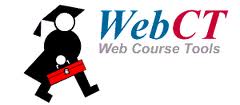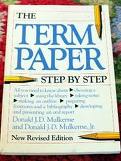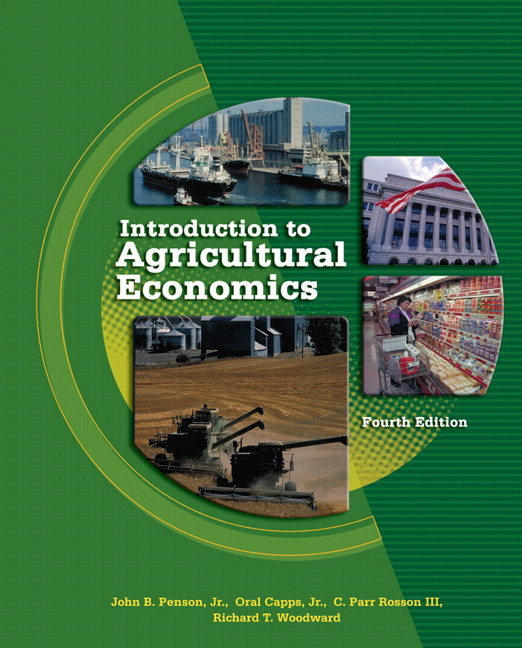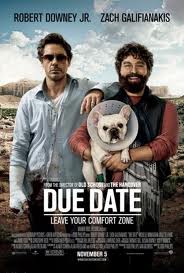
ECN3870
ONLINE: Agricultural
Economics Spring 2015
Dr. Ali R. Moshtagh
Phone: 581- 2916
Office: 2371 Coleman Hall
E-mail: amoshtagh@eiu.edu



Office Hours: MWF: 9:00 - 9:50 am & TR: 8:30 -
9:20 am
Course
Description:
An
introduction to the application of economic theory and method to problems
in agriculture and agribusiness; provides the foundation needed to understand,
interpret, and analyze farm policy in the United States.
Learning
Objectives:
-
Examine the
problem of scarcity in the world around us
- Learn the
basic skills of the agricultural economist
-
Understand
the role of agriculture in the U.S. Economy
-
Be able to
explain the changing complexion of agriculture in the U.S.
-
Discuss the
role of the government in agriculture
-
Examine the
importance of foreign trade to the U.S. farm business sector
-
Study market
structures of the agribusiness industries in the U.S.
-
Analyze agricultural
policy in the U.S.
-
Identify
and discuss agricultural problems in Illinois
John B. Penson, Jr., Oral Capps, Jr., C. Parr
Rosson III, Richard T. Woodward, Introduction to Agricutural Economics,
Fourth Edition, 2006 by Pearson Education, Inc.,
Upper Saddle River, New Jersey 07458.
Distribution
of Points:
Final grade will be comprised of:
| Bi-Weekly Short Papers |
20 Percent |
| Exams One, Two, and Final |
30 Percent |
| Term Paper & First Draft |
10 Percent |
| Presentation of Term Paper |
5 Percent |
| Discussions Participation |
20 Percent |
| Assignments |
15 Percent |
Methods
of Evaluation
1.
WebCT CE8 
Throughout the course, you will be using WebCT CE8: http://www.eiu.edu/online/home/
The Student class notes and other class assignments
or materials will be available for download or submission on WebCT CE 8.
To login into WebCT CE8 you need your EIU username
and password: https://online.eiu.edu/webct/entryPageIns.dowebct
Information and tutorials about using WebCT CE8 are
available here: http://www.eiu.edu/online/student/index.php
Please contact me if you are having difficulties accessing the material
available for this course.
2.
Exams 
You will have three ON LINE (WebCT) exams: Exam One, Exam Two, and a final
exam. The final exam is not cumulative.
Each exam will consist of 30 multiple-choice questions, two short answer questions,
and one problem. Each exam covers 4 chapters. Questions will be taken from
the assigned short papers, online threaded discussions, and the required textbook.
Before each exam, I will provide you with a study guide. Each exam is worth
10 percent of your final grade.
3.
Discussions Participation 
Regular participation is necessary for you to understand the material covered
in this course. You are required to participate in a series of online discussions
throughout the semester. Discussion questions will be posted on Monday
mornings, and discussions will close at midnight on the following Sunday.
Therefore, you will have an entire week to discuss the posts. For more instructions,
please read "Instructions for Online Discussions and Grading Rubric"
in the learning module 1.
4.
Short Papers 
You will have to write a short paper every other week: at least one short
paper for each chapter we cover.
-
You have to submit it using WebCT (under "Assignments")
-
Please submit your papers as Word document attachments.
-
The name of the file attached should be: "Your
name- SP-paper number.doc"
-
The length of the paper should not exceed two pages
-
NO LATE PAPERS WILL
BE ACCEPTED
-
Topic of the paper: one economic issue (what we discuss this week/chapter) as understood
and identified by you in a newspaper article or a current/historical event.
This week on TV/newspaper/radio/online I saw/heard/read
"this" and it made me think of "this economic concept"
This week, "something happened" to me/my family/my friend that made me
think of "this economic issue".
The structure of the short paper should be
Title of the paper
Introduction: define
the economic concept your story will cover (30%)
Describe the story
as seen on TV / read online or personal experience (30%)
Explain why and
how your story conveys the economic concept (40%)
The short-paper grade is worth 20 percent of your final grade.
5.
Term Paper (and Draft of Term Paper) 
First, you have to turn in the first draft of your paper. I will read it,
write suggestions for improvement, and return it to you. Later, you will have
to turn in the final version of your term paper.
-
You have to submit them using WebCT (under "Assignments")
-
Please submit your papers as Word document attachments.
-
The name of the Draft should be: "Your name-
Draft.doc"
-
NO LATE DRAFTS WILL
BE ACCEPTED
-
The name of the term paper should be: "Your
name- Paper title.doc"
-
The length of the papers should not exceed ten pages
-
Topic of the paper: economic issues as understood
and identified by you in a newspaper/journal article, a book, or a current/historical
event.
The structure of the draft and term paper should
be
-
Title of the paper
-
Introduction: define the economic concept/concepts
you will cover
-
Tell the story (describe the scene from the movie,
TV show, or discuss the newspaper/journal article)
-
Explain why and how your event conveys the economic
concept
-
Conclusion
-
The Term Paper
& Draft grade (15 percent of final grade) is calculated as
follows: 10% Draft grade + 90% Term paper grade.
-
Keep in mind three deadlines:
Topic and title
of term paper: Monday, February 27, 2012 (tentative)
o Title of your term paper
o Topic (economic concept) of your term paper [e.g.: marginal
utility]
o The hypothesis (analytical or descriptive), justification, outline
-
You have to submit
it on WebCT, under "Assignments"
-
You will lose 5 points (out of 100) from your
Term paper grade for each day
your Topic is late
-
Draft of term paper:
Wednesday, March 14, 2012 (tentative)
-
NO LATE DRAFTS WILL BE ACCEPTED
-
I will grade it,
write comments, and post it on WebCT
-
Term Paper: Friday,
April 23, 2012
6.
Term Paper Presentation 
You have the option of presenting your
term paper in person on campus or post it as a video file on WebCT. In either
case:
-
You must make a maximum 15-minute PowerPoint presentation of your term paper.
-
The structure of your PowerPoint presentations should
be:
-
Title of your presentation
(term paper title)
-
List the economic
concepts used in the presentation
-
Describe and explain
your hypothesis, justification, and analysis
-
Conclusion
-
You will make your presentation during the last two
weeks of class
- Please
Note:

-
No EXAM grades will be eliminated. No EXAMs will be made up unless
proper arrangements have been made prior to the scheduled EXAM date.
-
If you have a documented disability and wish to receive academic accommodations,
please contact me and the Coordinator of Disability Services (581-6583)
as soon as possible.
Exam Dates: 
Exam
One: Wednesday, 15 February, 2012
Exam Two: Wednesday, 28
March, 2012
Final
Exam: Thursday, 10 May, 2012
Course
Outline:
|
Part
1: An introduction to the Economic History of American Agriculture
- What is Economics?
- Resources: Labor; Capital; Natural resources; Entrepreneurial ability
- Goods and Services
- Basic Skills of the Agricultural Economist
- Agricultural Economics and Agribusiness
Part 2:
Agricultur's Role in the U.S. Economy
- The Changing Complexion of Farming in the U.S.
- The Farm Balance Sheet
- Farm Organization
- Government Intervention in Agriculture
- Agribusiness and International Trade
Part 3: Theories of Consumer
Choice
- The Cardinal Theory of Consumer Choice
- The Ordinal Theory of Consumer Choice
- Consumption of Agricultural Commodities
- Utility Maximization Subject of a Constraint
- Consumer Equilibrium
- Demand
Part 4: The Theory of the Firm
- Production of Agricultural Commodities
- Production Management
- Cost Analysis
- Short-run Costs vs. Long-run Costs
- Outcomes of Profit Maximizing Behavior
- Supply
- The Price System
- Market Structures
- Competition and Efficiency
- Market Structures of the Agribusiness Industries
|
Part
5: Macroeconomic Linkages
to Agriculture
- National Income Accounting
- A Review of Fiscal and Monetary Policy
- Agricultural Policy
- Agricultural Price and Income Policies
- Agricultural Finance and Agricultural
Credit
- Agricultural Cooperatives
- Budgeting
Part 6: The efficiency of competitive
markets
- Economic systems
- Government spending and taxation
- Market economies, Market efficiency
- Perfectly competitive market
- Effects of interference in competitive markets
Part 7: The Importance of World
Trade to U.S. Agriculture
- International Trade Models
- Trade Barriers
- Tarrifs
- Non-Tariff Barriers
- Trade Liberalization
- NAFTA
- EU
- Common Agricultural Policy
- GATT
- WTO
- Exchange Rates and Foreign Exchange Markets
- Balance of Payments
Part 8: Other Topics in Agricultural
Economics
- The Economics of Land Use and Value
- Resource Economics
- Agricultural Problems in Illinois
|
| |
|










